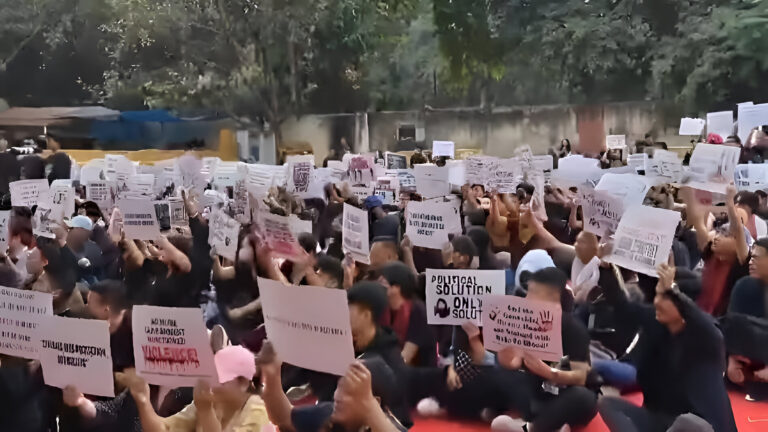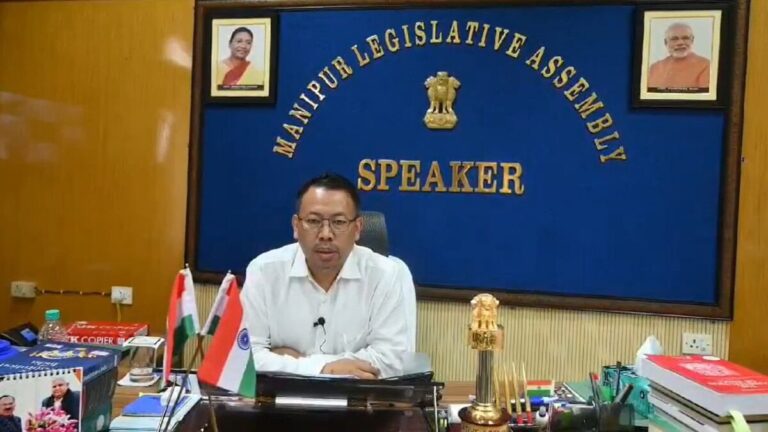Manipur Security Forces Destroy 48 Acres of Poppy Plantation in Churachandpur District
Summary of the News Article
In a significant operation, security forces in Manipur successfully destroyed 48 acres of poppy cultivation in the Churachandpur district. This bold action aims to curb the rampant drug trade in the region and addresses concerns about its devastating social and economic consequences. The operation highlights the state’s commitment to eradicating illegal poppy plantations that serve as a source of narcotics production.
Cracking Down on Poppy Cultivation: Manipur’s Fight Against Narcotics
Manipur’s breathtaking landscapes, rich culture, and resilient communities often contrast sharply with the challenges it faces. One of the major battles it’s fighting is against the narcotics trade, particularly the cultivation of poppy plants. Recently, the state made headlines when security forces destroyed 48 acres of poppy plantations in the Churachandpur district. Let’s dive into what this means for the state and its people.
What Makes Poppy Cultivation a Concern?
Poppy cultivation is at the heart of the narcotics trade, primarily because the plant is used to produce opium. This opium is further processed into heroin, a drug that wreaks havoc on lives and communities. But why is this such a big deal for Manipur?
- Fueling the Drug Trade: Manipur’s strategic location near the “Golden Triangle” (the meeting point of Myanmar, Thailand, and Laos) makes it a hotspot for drug trafficking. Poppy plantations act as a primary source for illegal drugs.
- Impact on Local Communities: While some locals may resort to poppy farming for economic reasons, the long-term effects are detrimental. Addiction rates rise, families suffer, and the community bears the brunt of the social decay.
- Environmental Consequences: Poppy farming often involves clearing large forest areas, leading to deforestation and soil degradation.
The Operation: 48 Acres of Poppy Plantation Destroyed
A Coordinated Effort
This wasn’t a random act of destruction—it was a meticulously planned operation. Security forces, including police and paramilitary units, worked together to identify and target the areas of cultivation.
How It Was Executed
Armed with precise intelligence, the forces moved into the Churachandpur district and began clearing the fields. Using tools like bulldozers and fire, they ensured the complete destruction of the plantations.
Challenges Faced
Operations like these are far from easy. They involve navigating rough terrains, dealing with potential resistance from those involved in the trade, and ensuring that the operation doesn’t negatively impact innocent locals.
Why This Operation Matters
Breaking the Backbone of the Narcotics Trade
Every acre of poppy plantation destroyed is a step towards dismantling the drug trade. With fewer raw materials, the production of narcotics takes a hit.
Sending a Strong Message
The destruction of 48 acres sends a clear message: illegal activities won’t be tolerated. It’s a warning to those involved in the trade and a reassurance to the public that the government is serious about tackling this issue.
Restoring Manipur’s Natural Beauty
Beyond the social and economic impacts, clearing these plantations also helps restore the region’s natural environment, which is often damaged by illegal farming.
The Bigger Picture: Manipur’s War on Drugs
A Statewide Campaign
The operation in Churachandpur is part of a larger campaign by the Manipur government to combat the drug menace. Initiatives like “War on Drugs” emphasize not only eradication but also awareness and rehabilitation.
Addressing the Root Causes
While destroying plantations is essential, it’s equally important to address why they exist in the first place. Poverty, lack of alternative livelihoods, and the lure of quick money are some of the reasons farmers turn to poppy cultivation.
Involving the Community
Change is most effective when it comes from within. Community-led initiatives, where locals are educated about the harmful impacts of poppy farming and provided with sustainable alternatives, are crucial.
The Role of Security Forces
Manipur’s security forces play a pivotal role in this fight. Their responsibilities go beyond just clearing fields—they also work on intelligence gathering, community engagement, and ensuring the safety of those affected by the drug trade.
Challenges They Face
- Resistance from Cultivators: Many cultivators, driven by poverty, resist these operations as it’s their primary source of income.
- Terrain Difficulties: The hilly and forested regions of Manipur make operations physically demanding.
- Threats from Drug Cartels: The organized nature of the narcotics trade means security forces often face threats from well-funded and armed groups.
Alternative Solutions for Farmers
Providing Sustainable Livelihoods
One of the most effective ways to combat poppy cultivation is by giving farmers viable alternatives. Crops like ginger, turmeric, and bamboo not only provide income but also have a lower environmental impact.
Government Support
Schemes that offer financial assistance, training, and market access can encourage farmers to switch from poppy to legal crops.
Involving NGOs
Non-governmental organizations can bridge the gap between the government and farmers, providing on-ground support and education.
What This Means for Manipur’s Future
The destruction of these poppy plantations is a step in the right direction, but it’s not a silver bullet. The fight against narcotics requires a multi-pronged approach that combines enforcement, education, and rehabilitation.
A Safer Manipur
By reducing the availability of narcotics, the state can curb addiction rates and improve public health.
Economic Growth
With less reliance on illegal activities, Manipur can focus on sustainable economic development, attracting investments and boosting tourism.
Environmental Conservation
Clearing poppy plantations paves the way for reforestation and conservation efforts, ensuring that Manipur’s natural beauty remains intact for future generations.
Conclusion
The recent operation to destroy 48 acres of poppy plantations in Churachandpur is more than just an anti-drug campaign—it’s a fight for Manipur’s soul. It’s about protecting its people, preserving its environment, and paving the way for a brighter future. While challenges remain, the determination shown by the security forces and the government is a beacon of hope.
FAQs
- Why is poppy cultivation prevalent in Manipur?
Poppy farming often provides a quick source of income for impoverished farmers in the region, despite its illegal status. - What happens to the destroyed plantations?
After destruction, efforts are often made to rehabilitate the land through reforestation or alternative farming initiatives. - How can locals contribute to the fight against narcotics?
Locals can report illegal activities, participate in awareness programs, and support sustainable farming practices. - What crops can replace poppy cultivation?
Crops like ginger, turmeric, and bamboo offer sustainable and profitable alternatives for farmers. - Is the government providing support to affected farmers?
Yes, several government schemes aim to help farmers transition to legal and sustainable livelihoods.





